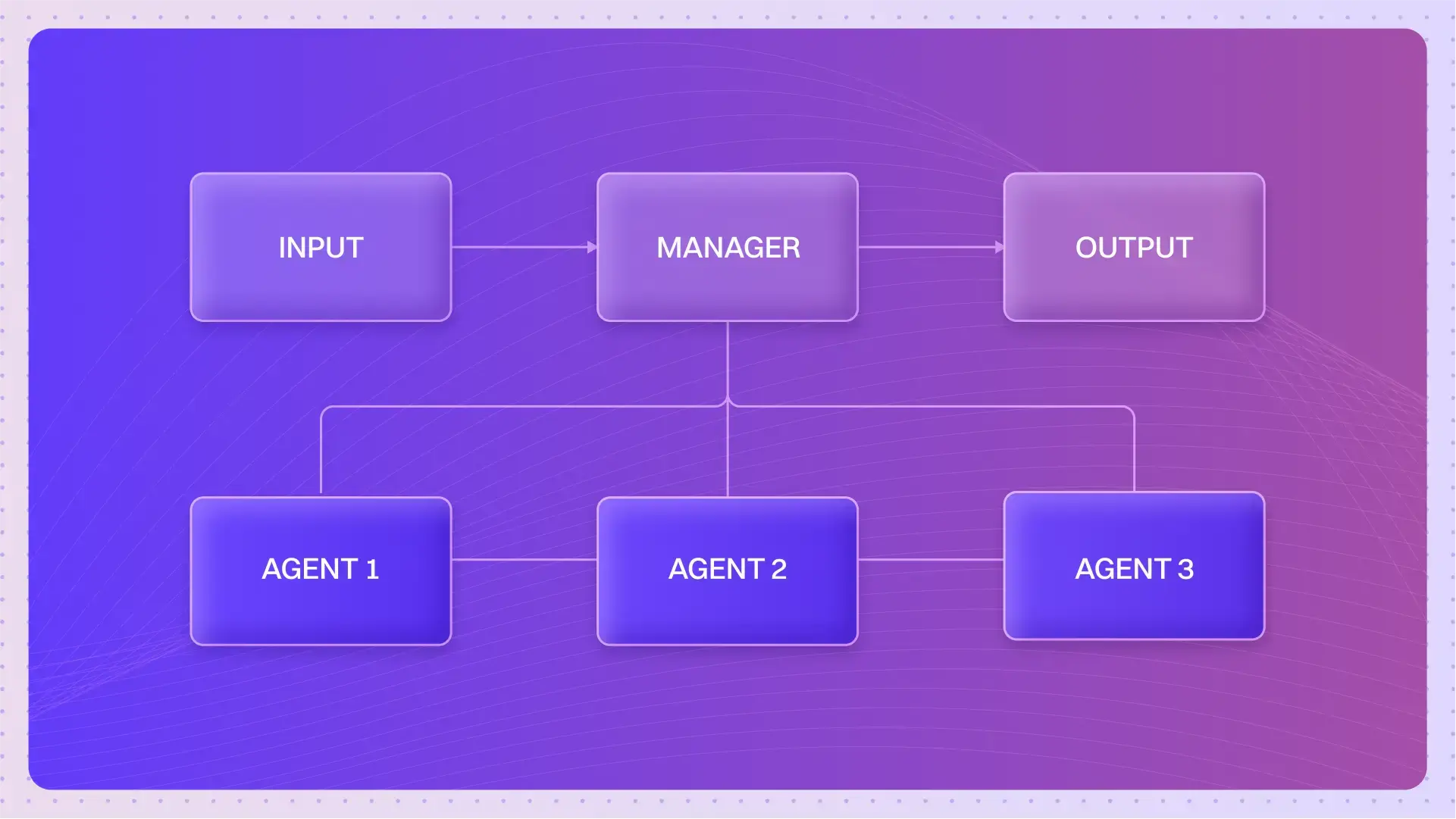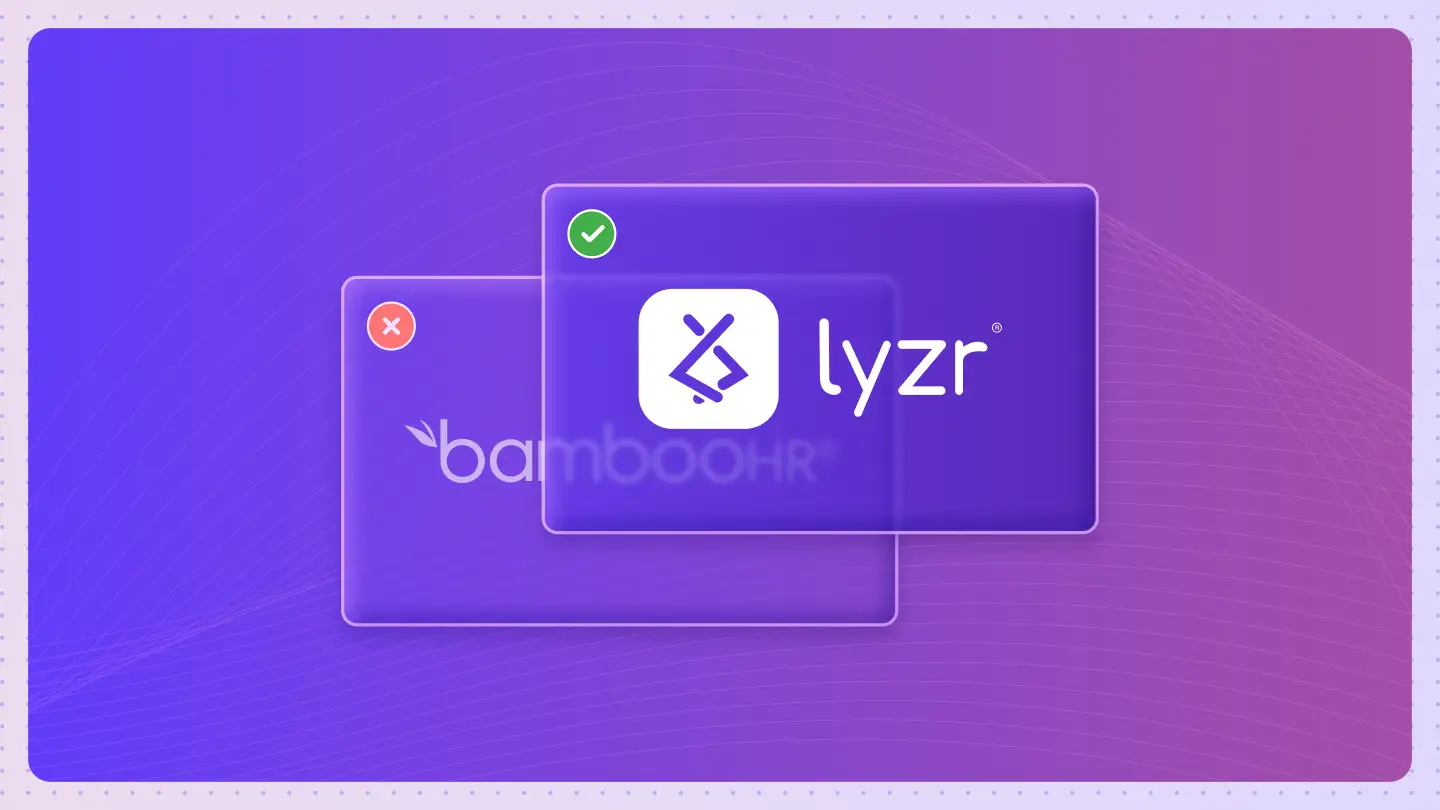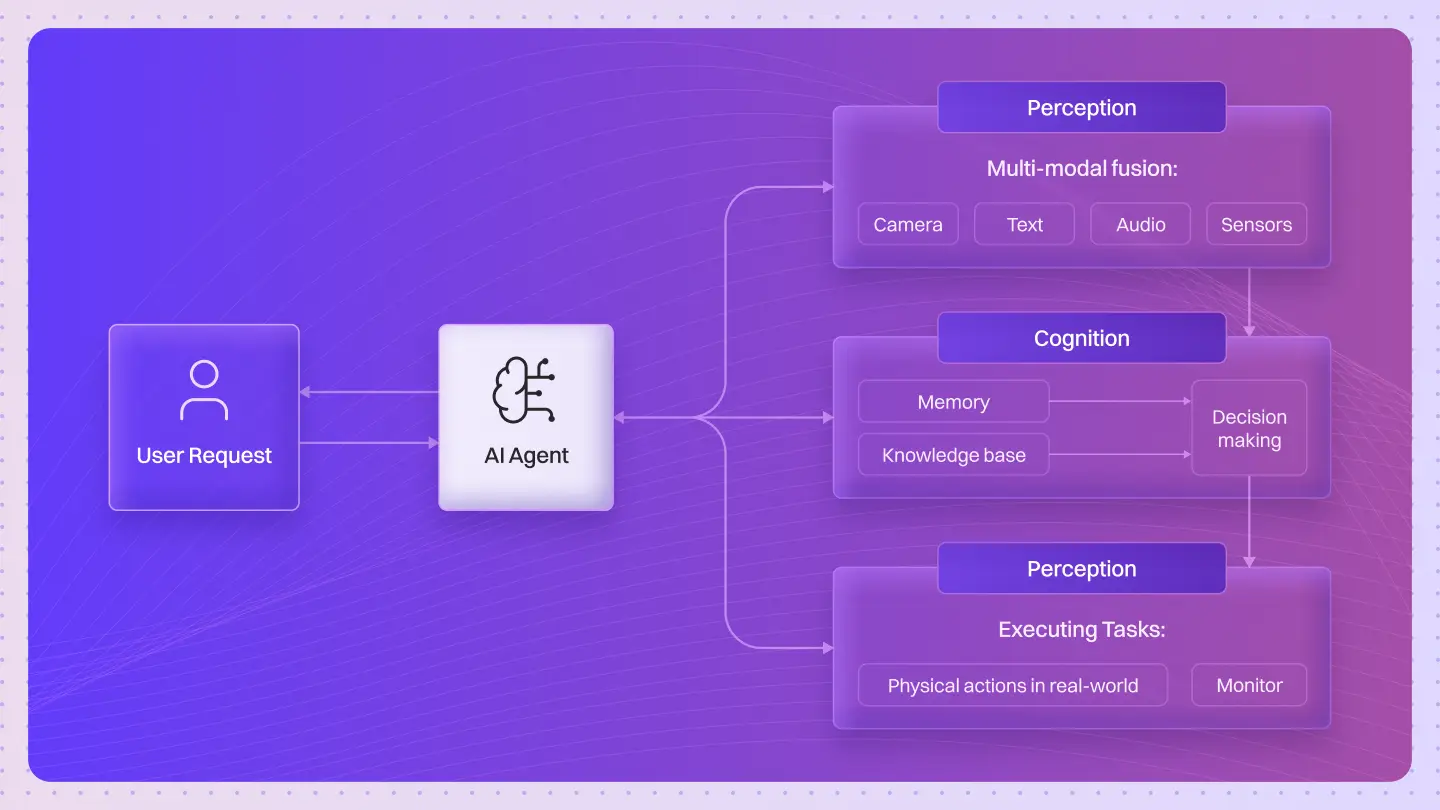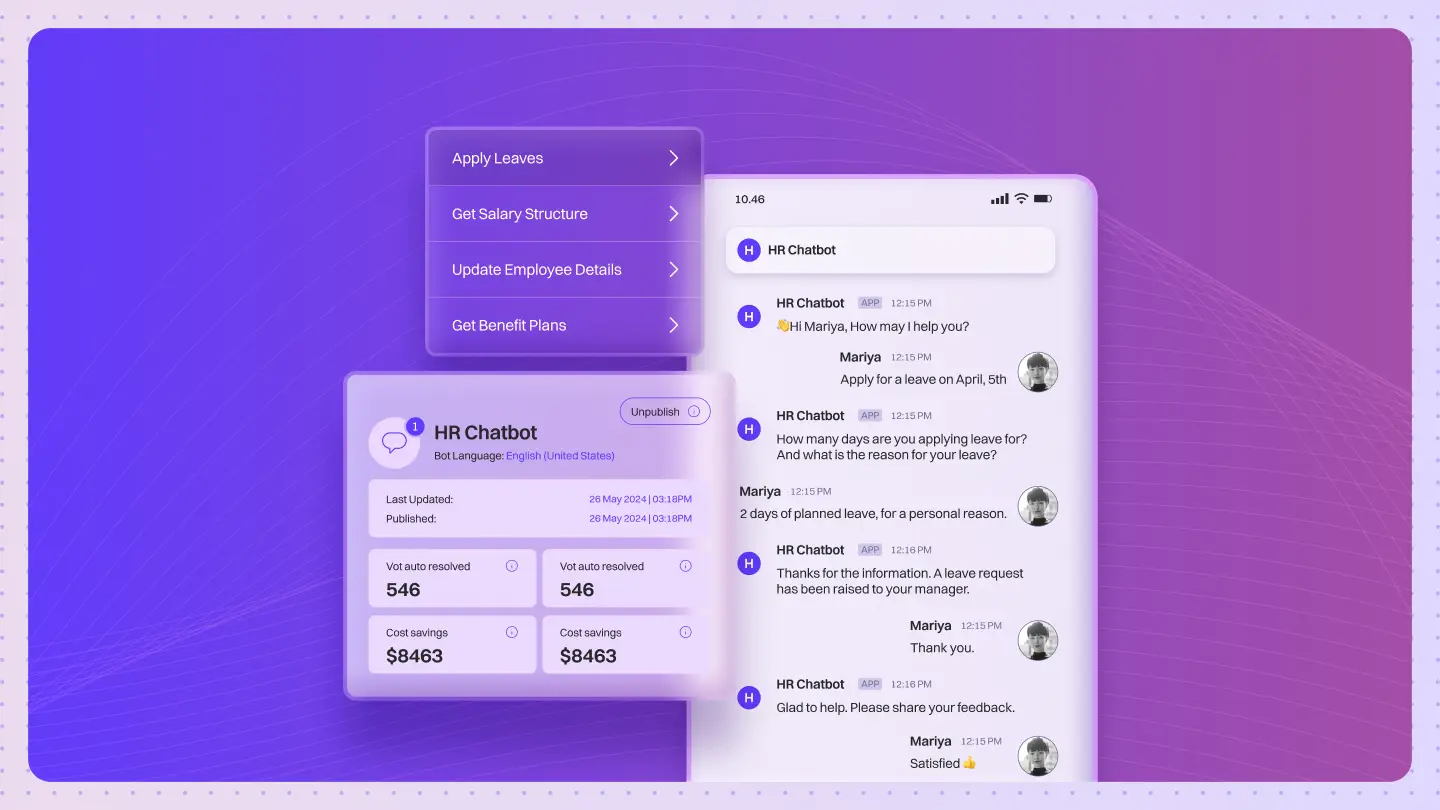Table of Contents
ToggleSam Altman. Satya Nadella. Andrew Ng. Sundar Pichai.
When the loudest voices in tech are aligned on one thing, you pay attention.
Right now, that thing is AI agents.
Why? Because this is where software is headed. It’s what enterprises are investing in.
And it’s how businesses are staying ahead.
AI agents aren’t a futuristic concept anymore. They’re already reshaping how companies work—automating decisions, handling tasks, and adapting in real time.
But to build agents that actually work for your business, you need to start with the right foundation: agent frameworks.
This article breaks it down, what are AI Agent framework
Understanding AI Agent Framework
If you’re from a non-tech background, think of an agent framework as the brain behind an AI agent. You give it a task. It figures out what steps are needed, uses the right services or data, and completes it. You don’t need to know how it all works underneath. The framework takes care of the thinking and doing, so the agent can focus on results.

Now let’s get into the technical side of it.
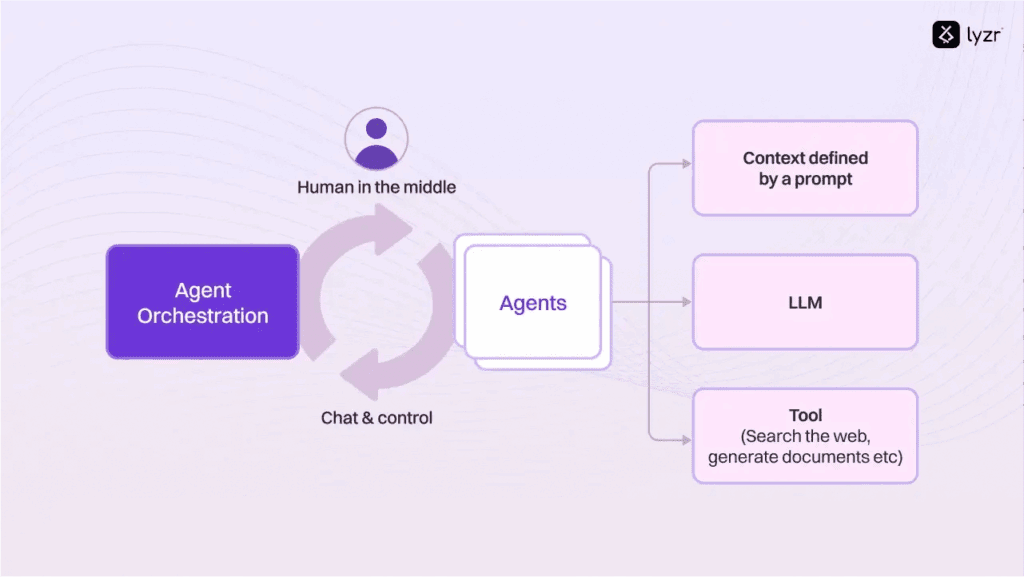

AI agent frameworks are platforms, libraries, or environments designed to build autonomous agents capable of perceiving input, processing it with algorithms or LLMs, and performing tasks like retrieving data, initiating workflows, or interacting with users.
These frameworks simplify agent workflows by providing modular components for essential functionalities, enabling developers to focus on customizations while ensuring transparency, reliability, and scalability.
AI agent frameworks come in all shapes and sizes. Some are built for conversations, like virtual assistants or chatbots, while others excel at handling workflow automation.
Some common capabilities you’ll find include:
- Event-based triggers and scheduled tasks
- Role-based access and permissions
- Integration with external databases and APIs
- Support for real-time feedback and agent tuning
- Built-in safety, throttling, and retry mechanisms
What are the different types of agent framework?
| Type of Agent Framework | What it Does | Best For | Example |
|---|---|---|---|
| Rule-based | Follows fixed rules or conditions to act | Simple tasks with clear logic | A chatbot that answers FAQs based on predefined rules |
| Reactive | Responds directly to inputs without memory or planning | Real-time decisions | An AI that auto-accepts calendar invites if there’s no conflict |
| Deliberative | Plans actions based on understanding the task and its goals | Tasks that need reasoning | A virtual agent that schedules meetings by checking calendars, preferences, and time zones |
| Hybrid | Combines reactive and deliberative behaviors | Tasks needing quick responses and planning | A customer service agent that answers instantly and escalates based on context |
| Learning-based | Improves over time using data and feedback | Adaptive tasks | An agent that gets better at writing reports based on feedback from past edits |
Building AI Agents? Here’s What the Framework Should Offer
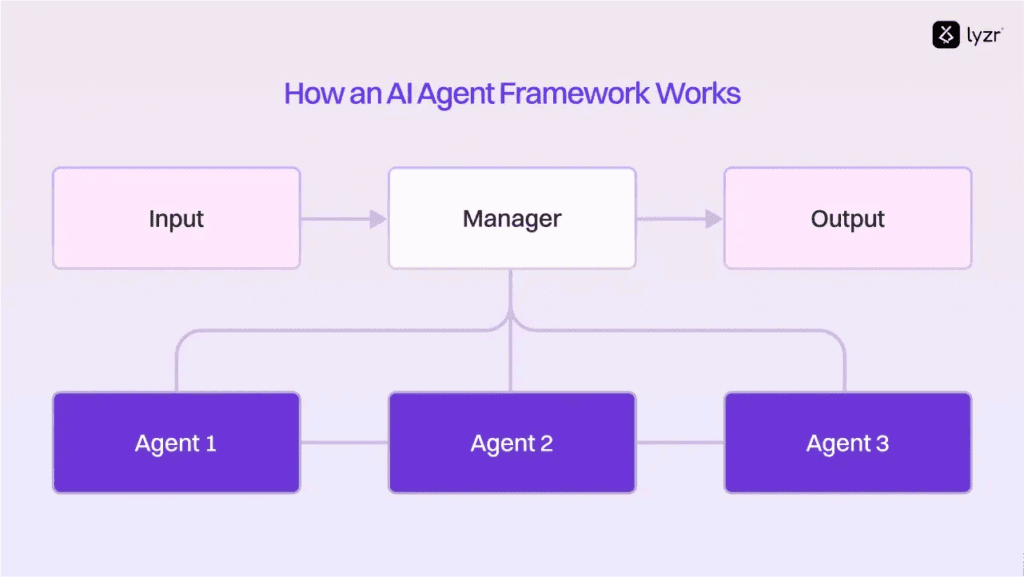

- Agent Management: A good framework should let you create, train, and deploy agents without friction. It should support both technical and no-code workflows, so development and updates are easy to manage.
- Conversation Management: It should handle conversations intelligently, tracking context, managing history, and generating responses that make sense over time, not just in isolated messages.
- User Management: The framework needs to remember who it’s talking to. Tracking preferences, past interactions, and behavior helps agents respond in more relevant, personalized ways.
- Integration: Connecting to APIs, databases, or other services should be straightforward. A strong framework makes sure agents can pull and push data across systems without complex setup.
- Customization: One size never fits all. The right framework gives you control, add your own features, fine-tune data, and shape how the agent responds to match your goals.
- Journey Management: Beyond single tasks, the framework should support full user journeys, tracking steps, decisions, and context over time to deliver smarter outcomes.


How AI Agent Frameworks Make Building Agents Easier??
The growing complexity of business operations requires intelligent solutions that can not only automate repetitive tasks but also make decisions autonomously. AI agent frameworks are critical for several reasons:
- Easier to Build: Frameworks provide ready-made tools to simplify the creation of AI agents.
- Customizable: They let you easily adjust agents to fit specific needs.
- Scalable: Frameworks help agents grow and adapt as your business needs change.
What are the top AI Agent frameworks?
- Lyzr: A low-code platform for building, customizing, and scaling AI agents quickly. It offers flexibility and ease of use, making it ideal for businesses at any stage.
- Rasa: An open-source framework that enables developers to create sophisticated AI-powered chatbots and assistants with a focus on natural language understanding.
- Dialogflow: Powered by Google, this framework simplifies the development of conversational agents using natural language processing to handle complex dialogues.
- Microsoft Bot Framework: A comprehensive framework for building AI chatbots, providing rich integration with Microsoft services and offering robust tools for handling conversations at scale.
- Botpress: An open-source platform that allows for flexible and customizable AI agent development with a focus on easy-to-manage workflows and extensibility.
A Quick Feature Comparison
| Feature | Lyzr Agent Studio | Rasa | Dialogflow | Microsoft Bot Framework | Botpress |
|---|---|---|---|---|---|
| No-code/Low-code Support | ✅ | ❌ | ✅ | ✅ | ✅ |
| Customizable for Complex Use Cases | ✅ | ✅ | ✅ | ✅ | ✅ |
| Native Voice Integration | ✅ | ❌ | ✅ | ✅ | ❌ |
| Enterprise Scalability | ✅ | ✅ | ✅ | ✅ | ✅ |
Want to know in detail? Check out here
And what can your business do with an agent framework?


To demonstrate the impact of agent frameworks, consider these business-critical scenarios.
1. Handle 20,000+ Tickets a Month with Ease
Think scaling is just about adding more servers? Think again.
Handling thousands of simultaneous requests, like 100+ per second per instance, can quickly degrade performance without the right infrastructure.
Running hundreds of agents at once? Each one must maintain its context while sharing vital insights across your systems.
Then, there’s the massive data load: enterprises process terabytes daily, from 20,000+ IT support tickets each month to user data and system states. Without intelligent load balancing and resource allocation across regions, your operations are at risk.
That’s where an agent framework comes in. It provides the structure to handle high volumes, maintain context across multiple agents, and scale seamlessly. With built-in performance optimizations, your system can run at the scale needed to meet enterprise demands.


2. Prevent a $4.88 Million Security Breach with Robust Protection
Think a security breach won’t happen to you? The numbers beg to differ.
A breach can cost an enterprise $4.88 million on average (IBM, 2024).
That’s a serious price to pay, and enterprise security standards are non-negotiable. Does your current system support multiple authentication methods like SSO, MFA, or OAuth?
How about role-based access control (RBAC) with granular permissions? And what about data encryption and compliance with regulations like GDPR, CCPA, HIPAA? Without these in place, your business is exposed.
An agent framework ensures compliance and security at every level. With built-in support for multi-method authentication, encryption, and regulatory requirements, it safeguards your enterprise from the risks that could otherwise cripple it.


3. Efficiently Manage 231++ Apps Across Your Enterprise
Using 93 apps sounds chaotic? Try 231—that’s the average for large companies, with an 11% year-on-year increase (Okta).
Managing this complexity means handling legacy systems, multiple databases, and different protocols—REST, SOAP, GraphQL—and that’s just the start.
Add workflows that span multi-step approvals, SLAs, exception handling, and escalations, and you have a real integration headache.
An agent framework simplifies this integration. It connects to various apps, supports multiple data formats and protocols, and integrates legacy systems with ease. With built-in auditing, documentation, and smooth workflow handling, it turns your tangled app ecosystem into a well-orchestrated machine.
Example of an AI Agent Framework: Lyzr + AWS
Lyzr Agent Studio integrates easily with AWS to create a powerful, scalable AI agent solution. Here’s how it works:


- AWS Infrastructure: Lyzr leverages AWS’s robust infrastructure, utilizing services like VPC (Virtual Private Cloud) to securely manage networks and resources across multiple Availability Zones (AZs). The architecture also incorporates public subnets for the efficient operation of core components like the Lyzr Agent API, Lyzr RAG (Resource Access Gateway), and Lyzr Orchestration, ensuring high availability and fault tolerance.
- Security and Access Management: With tools like WAF (Web Application Firewall), IAM (Identity Access Management), and Secret Manager, security is tightly managed. The infrastructure is designed to ensure secure API calls, manage user permissions, and store sensitive data safely.
- Data Storage and Database Integration: The system integrates AWS’s database solutions, including Document DB, PG Vector on RDS, and Elasticache Redis, for storing and querying large datasets that AI agents need to process. These databases are spread across multiple AZs to ensure reliability and fast access.
- Frontend and UI: The Studio Frontend enables users to interact with the platform for easy creation and management of agents. Lyzr Pages and Orchestration tools streamline user experience and workflow automation.
- Scalability and External Integrations: Using services like ECS (Elastic Container Service), ECR (Elastic Container Registry), and Route 53, Lyzr ensures that AI agents can scale to meet growing demands while maintaining optimal performance and uptime.
Lyzr: Your AI Agent Framework of Choice
As one of the top agent frameworks, Lyzr brings several advantages to the table
- Pre-built Agents: Lyzr offers a range of customizable agents for chat, search, data analysis, and more.
- Enterprise-Grade Security: Deploy Lyzr on your private cloud, ensuring full data control and compliance with regulations (Lyzr’s enterprise-grade security).
- Comprehensive Support: Lyzr offers 24/7 support with SLA guarantees, ensuring your agents run smoothly (support documentation).
- End-to-End Automation: From lead generation to workflow automation, Lyzr covers a wide range of use cases.
Explore more about Lyzr’s Agent Framework and how it can help your business.
Build and launch generative AI applications in minutes using Lyzr’s pre-built components.
Connect with our team at Lyzr today to discuss your AI development needs and unlock the potential of a future powered by intelligent agents.
Book A Demo: Click Here
Join our Slack: Click Here
Link to our GitHub: Click Here

